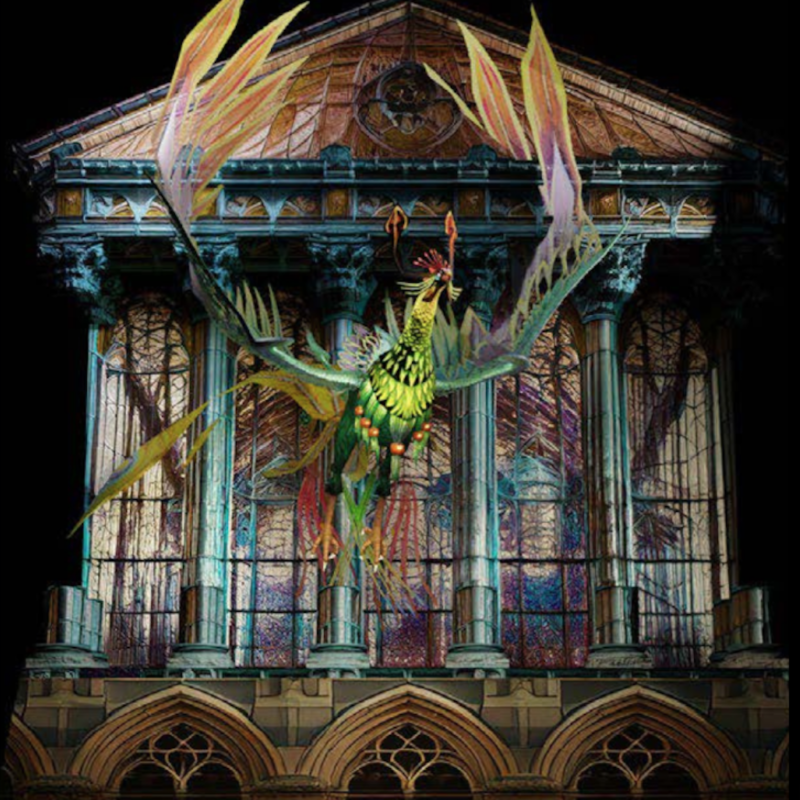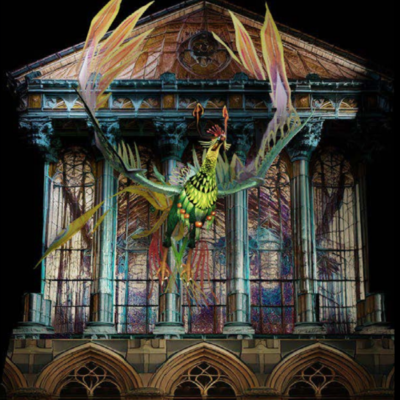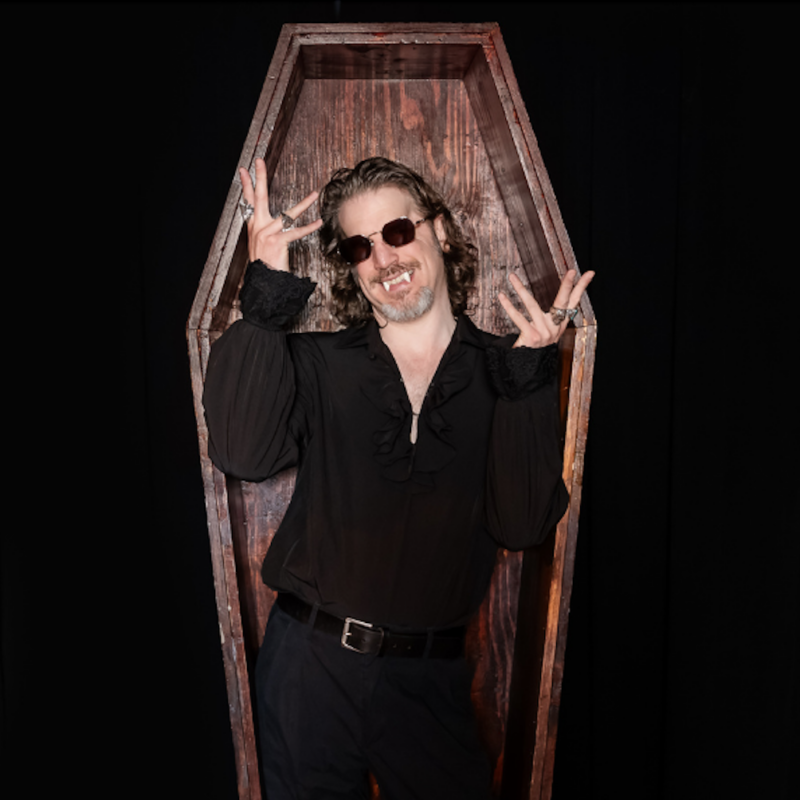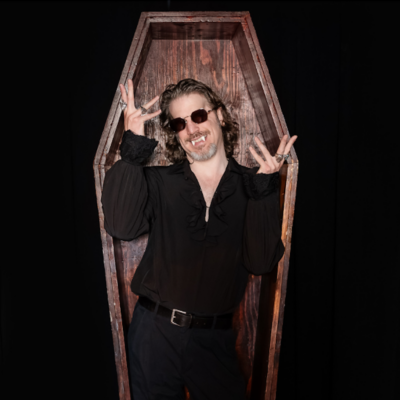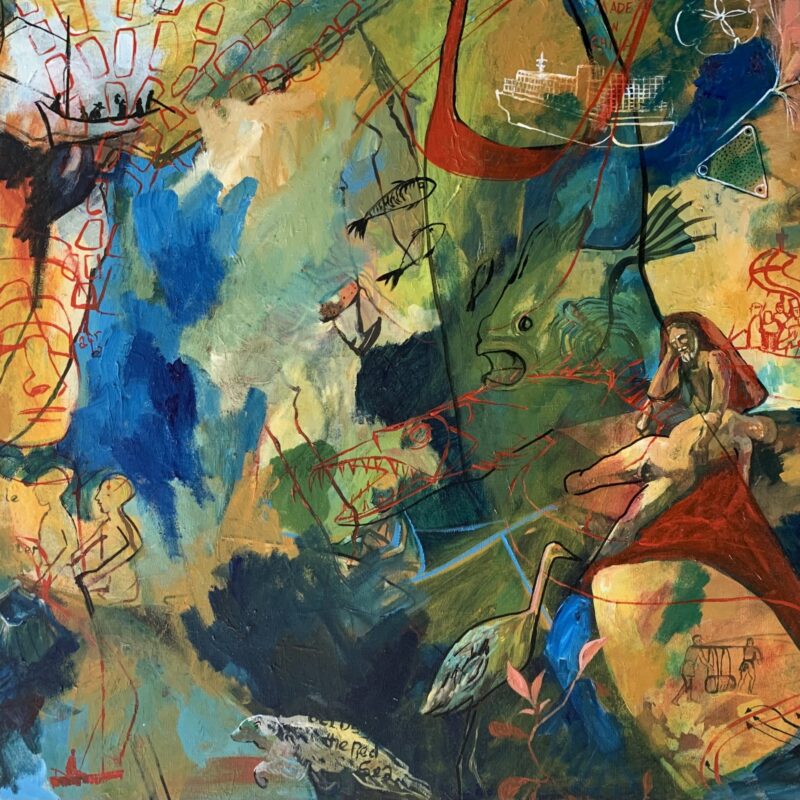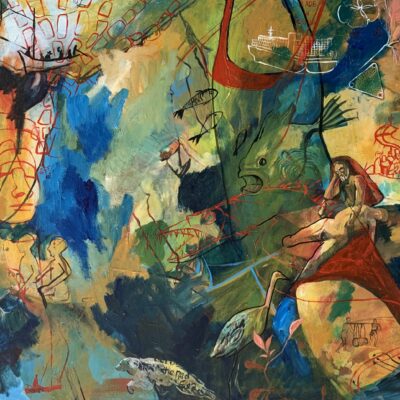Eugene Hütz is a poet in any language. Speaking in his heavily accented English, his words pop. They have weight. They hit you like distorted riffs.
Ask Hütz if his band Gogol Bordello’s exhaustive touring schedule takes its toll, for example, and he finds the perfect analogy.
“Listen, this is like asking people that are climbing Everest, ‘Does it get exhausting?’” he told C-VILLE Weekly while on tour in Ljubljana, Slovenia. The tour would take him throughout Europe, on to Canada, back stateside, and to the Jefferson Theater by July 17.
Gogol Bordello is considered by most to be the flag bearer of “gypsy punk,” which combines traditional Romani music with punk rock. For all its theatricality and rollicking fun, it’s not just party-punk with a dash of accordion for Hütz. It’s a mission. It’s like trekking to the top of the tallest mountain in the world.
The mission began a long time ago. Born in the Ukraine to a Russian father and German mother in 1972, Hütz and his family were driven from their home by slow-moving news of the Chernobyl meltdown when the boy was 17. Already, he was deeply into music. His band had released two albums.
“It was as abrupt as it was traumatic, and it removed me from all these things that the rest of the teenage world was holding onto very tight, like going to shows and parties and finding the best girlfriend,” Hütz said. “Suddenly I was on the road and with people that I would never normally choose to hang out with.”
Hütz said his family’s pilgrimage across Europe was anything but smooth, set adrift as they were among thousands of other refugees fighting for the papers needed to move to the U.S. “It was a huge stress for everybody, but we made it,” he said.
When his family arrived in the States in 1992, Hütz picked back up with his music almost immediately. Despite being a refugee who knew no one and spoke choppy English, he found a home in the U.S. hardcore scene. Hütz said the stateside punk rockers were in many ways more accepting of him than Europeans. It was a more athletic brand of performance, he said, one that jived with his background as a distance runner, and he appreciated the “positive direction” of bands like Black Flag, Rollins Band, and Fugazi.
What’s more, Hütz said, the life lessons he picked up while traveling gave him the people skills needed to keep a band together.
“I was coming from a universe of dealing with difficult people for years straight so going to concerts and meeting people, punk rockers from the States, it was more like joining forces,” he said. “It was a sigh of relief.”
After seven years and another move, this one from Vermont to New York City—likely just as culturally shocking as the one from the Ukraine to the U.S.—Hütz formed the band he would singlehandedly keep together for the next two and a half decades.
Gogol Bordello has had a herd of characters come and go since 1999, almost completely retooling every five years or so. It’s hard not to imagine the rockers as a wandering band of free spirits picking up lost souls willy-nilly along the way. But Hütz said the evolution has been far more focused than that.
“I am the heart of operations. It will be together as long as I am there,” he said. “The musicians I seek out because they have particular qualities. It is not some kind of a random thing; it is quite a focused effort in a lot of ways. A lot of it is people who are rooted in a very positive feeling of life.”
That positive feeling of life is perhaps the most endearing thing about Gogol Bordello’s music. Aspects of each Gogol album, like last year’s Pura Vida Conspiracy, can sometimes come off sounding satirical. The strange combination of instrumentation, together with Hütz’s almost caricatured accent, is a shock to the senses. And his oddball, poetic lyrics almost seem to be sending up the traditional punk tropes of resistance and subversion.
But Hütz isn’t making jokes, with his music or much of anything else. Take his politics. While many punk rockers would be happy to spew cliché lines undermining their government, Hütz is measured when talking about Ukraine’s ongoing civil war between the loyalists and pro-Russian separatists.
“[Politics] is not what I do, and I think that the support of an artist that can be there is largely about a positive way and calling people for harmonious resonance with each other more than anything,” he said.
The poet in Hütz can’t help but come out as he talks politics, and he clearly believes every word of his poetic proclamations. Sometimes, it all seems a little surreal. Perhaps that’s why he seems more comfortable onstage than in a telephone conversation.
“We give people the chance to express their full emotional range. They see the opportunity, and they take it fully,” Hütz said of Gogol Bordello’s concerts. “Music is foremost energy. Energy is life, and life penetrates throughout. If you are giving life out, you are going to get the response.”
